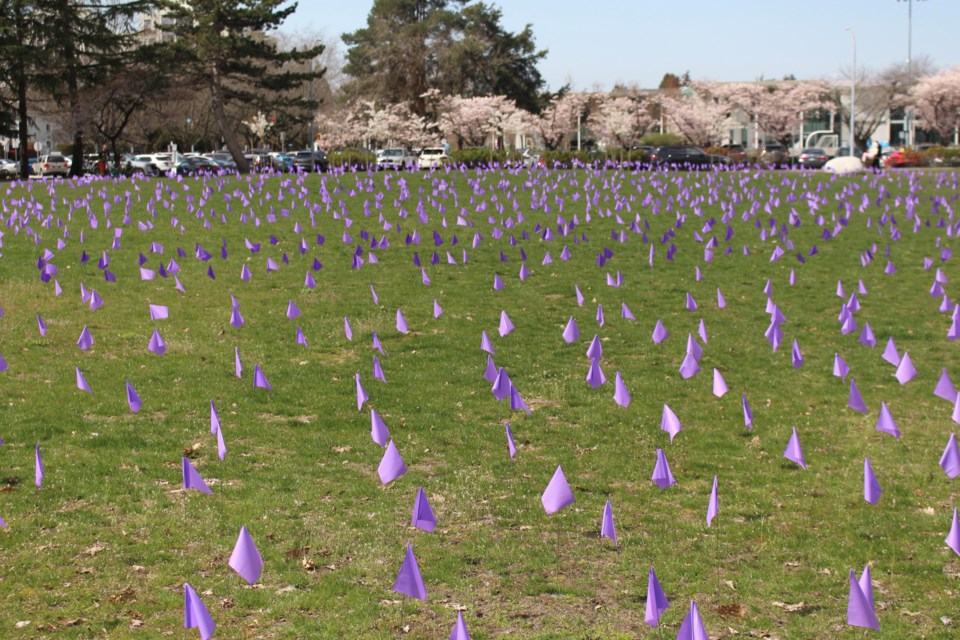B.C. Premier David Eby made a brave move Friday to recriminalize public drug use, but it had to be done.
Stories about and at bus stops, parks, or coffee shops leaving to stop them, were extremely problematic. The province tried to bring in laws against public drug use, but they were .
The government stopped short of full recriminalization, leaving the possession of drugs legal in private homes or in overdose prevention sites.
Eby said, in hindsight, it’s clear drug use in public should never have been allowed.
“Clearly, from the outset, we should have had the authorities in place for police to deal with it,” Eby said. “It’s very clear in hindsight.”
Eby recognized that this recriminalization initiative may also be challenged in the courts, but he said that would require arguing against federal rules, rather than simply provincial legislation.
“Our goal was to save lives,” Eby said. “But that compassion, that concern for people who are struggling, does not mean that anything goes.”
May 2024 marks eight years since the province declared a public health emergency over the opioid drug crisis, but the deaths keep coming. At least 14,208 people have died since 2016 and there are about six deaths per day, the earlier this month.
“The nature of the crisis is also changing. The way people are using drugs is changing — they are inhaling drugs rather than injecting them. The drugs they’re using are changing — they are even more toxic than before,” Eby said. “We’re seeing more and more people with serious brain injuries using publicly and their behaviour is erratic and concerning to the public.”
This move will allow police to force people using drugs to leave public places, to seize the drugs and to arrest the person if necessary, a news release says.
The timeline for implementation is unknown and will depend on Health Canada, Eby said.
Eby also announced the creation of a “virtual clinic” for treatments for opioid withdrawal, like methadone or suboxone, which will increase accessibility in smaller towns, and the expansion of a health centre in Vancouver’s Downtown Eastside.
The province will be working with experts to develop methods to track prescribed drugs to help prevent diversion, the news release said.
As I , some of those diverted drugs may end up in the hands of young people, a situation that is untenable in every way. Vancouver Police Department Deputy Chief Fiona Wilson told a federal committee earlier this month that half of hydromorphone seizures in B.C. were diverted from safe supply, the .
Any move to track those prescribed drugs, or prevent their diversion, should be supported.
Decriminalization must be part of a broader strategy that includes treatment, education, prevention and enforcement against organized crime groups, Wilson said at the Friday news conference. I would add that those pillars should have been firmly in place before decriminalization went ahead but strengthening them now and into the future certainly won’t hurt.
It is rare for anyone to be arrested for personal possession in B.C. and most people who use drugs go out of their way to avoid doing it in front of children and families, Wilson said.
“Our police officers do need to have legal authority to intervene in those rare situations where people are using illicit drugs under circumstances that are problematic,” she said. “Families need to know they can go to the beach and not have someone next to them ingesting illicit drugs.”
I agree with Eby that drug addiction is a health issue, not a criminal law issue, which is why I support tweaking the three-year drug decriminalization experiment, rather than ending it outright. Too many people are dying to give up.
Given B.C. is also dealing with a housing crisis, I do wonder how police will deal with drug use in homeless encampments. I understand the need to stop drug use in hospitals and on playgrounds, but if a homeless person is far from other people and using in the only private spot they have, I hope they won’t be arrested for using drugs.
Another complication might be that most opioid deaths occur inside — so far this year, 86 per cent of these deaths occurred inside, 48 per cent in private homes and 38 per cent in social housing. If more people are driven behind closed doors due to this change, the number of deaths may increase.
Drug decriminalization will likely need even more tweaking, but it will be worth it if we can end this tragic public health emergency.
Tracy Sherlock is a freelance journalist who writes about education and social issues. Read or email her [email protected].


